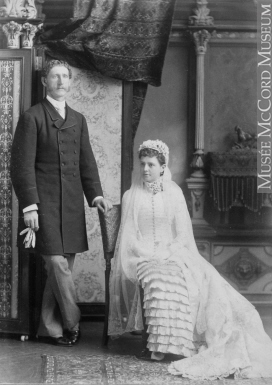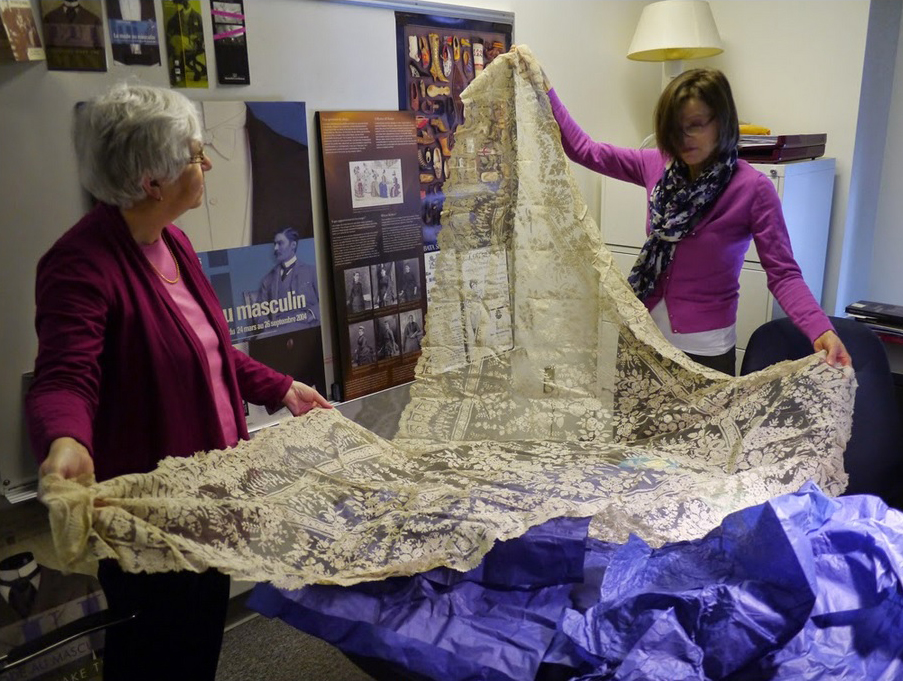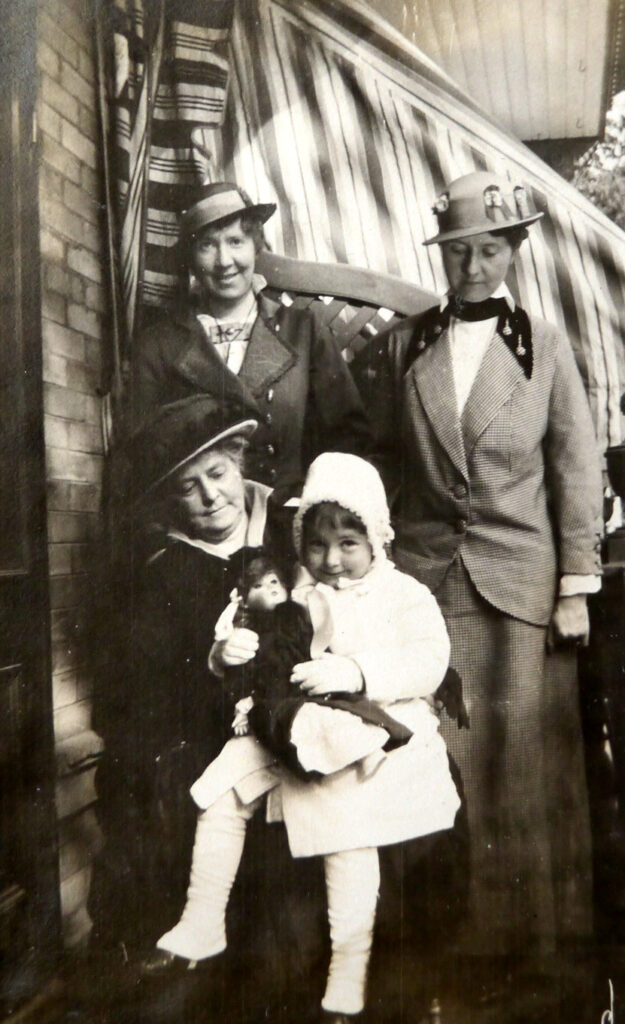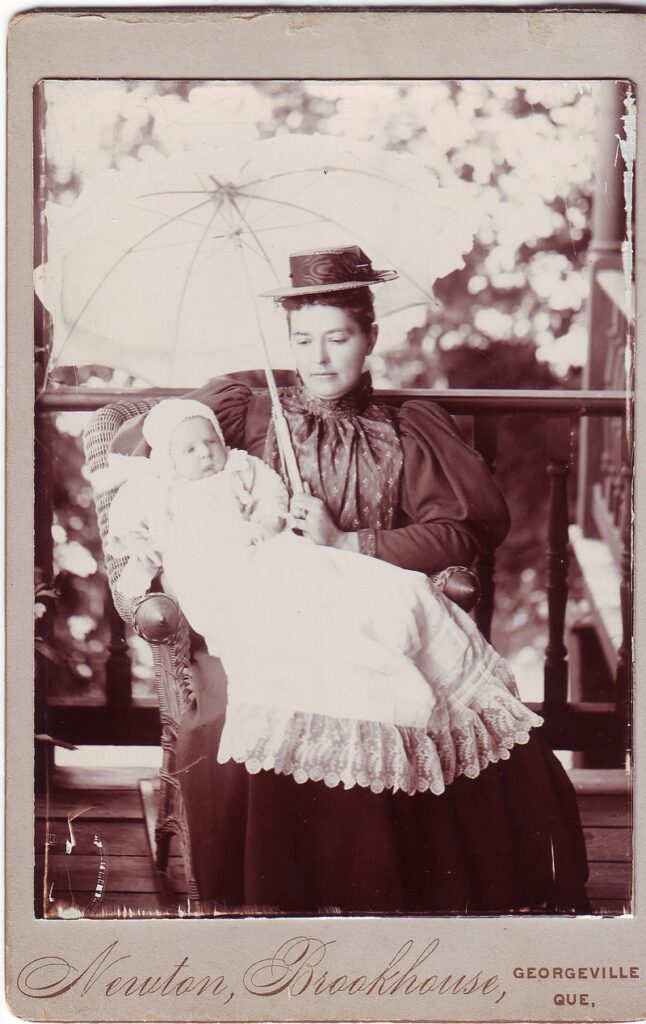
A few weeks ago, when I was writing an article about the 1882 wedding of Clara Smithers and Robert Stanley Bagg in Montreal, I remembered that I had something that might have belonged to Clara. In the cedar chest there was a dilapidated cardboard box that my mother had told me contained her wedding veil. Hand-written labels identified the contents as the wedding veil that had belonged to my grandmother, and that my mother also wore.
According to newspaper accounts of their respective weddings, my great aunt also wore it, as did her daughter. These sources mentioned that the veil had been Clara’s, and that it had originally been her mother’s. Clara’s mother, Martha B. Shearman, was married in Waterford, Ireland in 1844, so not only had this veil been used by many members of the family, it was very old.
I contacted Cynthia Cooper, who is in charge of the costume and textile collections at the McCord Museum, to see whether the museum would be interested in acquiring it. The McCord already has a collection of documents primarily relating to early 19th century merchants Stanley and Abner Bagg. Cynthia told me that the museum also has Clara’s wedding dress. She was excited that the veil and the dress would be reunited at least 60 years after my cousins donated the dress.
The veil was completely wrapped in dark blue tissue paper, folded and tied up with string in three places. The little bit of lace peeking out at the top appeared to be in good condition. I decided not to unwrap it until I got to the museum. When we arrived, Cynthia noted down some background information on her computer, then she carefully untied the string and opened the tissue paper to reveal the object inside.
We were amazed to see a large, triangular-shaped piece of flower-patterned lace. Then Cynthia searched for images of the veil among the museum’s vast photo collection, and in the photos I had sent her. We compared the wedding photos of Clara, my grandmother, my grandmother’s niece and my mother on their wedding days. There was no doubt about it: they were all wearing the same veil — and they were not wearing the lace shawl on the desk.

As often happens in family research, you make a discovery only to find it opens up more questions than you had before. I can imagine how the mistake happened: if my mother was the last person to use the veil, my grandmother must have mislabelled it when she put it away. But where is the veil now? Does it still exist?
And what is the shawl’s story? It is clearly old, but who owned it? Did it once belong to Clara Bagg, or could it, perhaps, have belonged to one of my grandmother’s aunts? Aunt Amelia Bagg is a possible candidate, since she was married twice but had no children. Maybe it belonged to a member of my grandfather’s family, or perhaps my grandmother purchased it herself.
Beautiful as the shawl is, I was disappointed to discover this was not Clara’s wedding veil, and so was Cynthia. She had clearly hoped to reunite it with the dress. She did take us to the costume vaults to show us Clara’s wedding dress, which, to my surprise, was not white, but ivory and yellow. That must have been a common fashion of the times, but it was not something I had been aware of.
As we left, Cynthia promised to research the shawl to find out what kind of lace it is made of, and to date it. She will let me know in a few months whether the museum will keep it.
Photo Credits:
1. Mr and Mrs. Robert Stanley Clark Bagg, Montreal, 1882, copyright McCord Museum, http://www.mccord-museum.qc.ca/en/collection/artifacts/II-66753.1
2. photo by Harold Rosenberg


